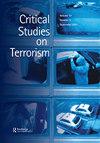Politics of Impunity: torture, the armed forces and the failure of transitional justice in Brazil
IF 2.5
Q2 POLITICAL SCIENCE
引用次数: 1
Abstract
The recent brutal assassination of Brazilian indigenous activist Bruno Pereira and British journalist Dom Phillips in the Amazon Rainforest by illegal loggers and miners in collusion with the government of President Jair Bolsonaro, illustrates a systematic culture of impunity in Brazil. In legitimising structural violence against the subaltern, including indigenous peoples and defenders of their cause, impunity is at the centre of a vast amount of literature that examines the ties of the military dictatorship’s legacy with quotidian violence in contemporary Brazil. One of the recent publications in this literature is Furtado’s Politics of Impunity: torture, the armed forces, and the failure of transitional justice in Brazil . This book inserts a different perspective into the transitional justice literature by exploring the outcomes and measures of the National Truth Commission (NTC) that has, from 2010 to 2014, belatedly investigated cases of atrocities committed during the Brazilian Military regime (1964–1985). Politics of Impunity focuses on the political process unleashed by revisiting and restoring a past of mass atrocities. It does so by shedding light on the NTC’s consequences in Brazil’s political history, marked by spiralling violence inflamed by the ascendancy of the far-right during the presidency of Jair Bolsonaro.有罪不罚的政治:酷刑、武装部队和巴西过渡时期司法的失败
最近,巴西土著活动人士布鲁诺·佩雷拉和英国记者多姆·菲利普斯在亚马逊雨林被非法伐木者和矿工与总统雅伊尔·博尔索纳罗(Jair Bolsonaro)政府勾结残忍暗杀,这表明巴西存在系统性的有罪不罚文化。在将针对底层民众(包括土著人民和他们的捍卫者)的结构性暴力合法化的过程中,有罪不罚是大量文献的核心内容,这些文献研究了军事独裁的遗产与当代巴西日常暴力之间的关系。这方面的最新出版物之一是Furtado的《有罪不罚的政治:巴西的酷刑、武装部队和过渡时期司法的失败》。这本书通过探索国家真相委员会(NTC)的结果和措施,为过渡时期司法文献插入了不同的视角,该委员会在2010年至2014年期间调查了巴西军事政权(1964-1985)期间犯下的暴行。有罪不罚政治关注的是通过回顾和恢复过去的大规模暴行而引发的政治进程。它通过揭示全国过渡委员会在巴西政治史上的后果来做到这一点,以极右翼在雅伊尔·博尔索纳罗(Jair Bolsonaro)总统任期内的优势所引发的暴力事件为标志。
本文章由计算机程序翻译,如有差异,请以英文原文为准。
求助全文
约1分钟内获得全文
求助全文

 求助内容:
求助内容: 应助结果提醒方式:
应助结果提醒方式:


